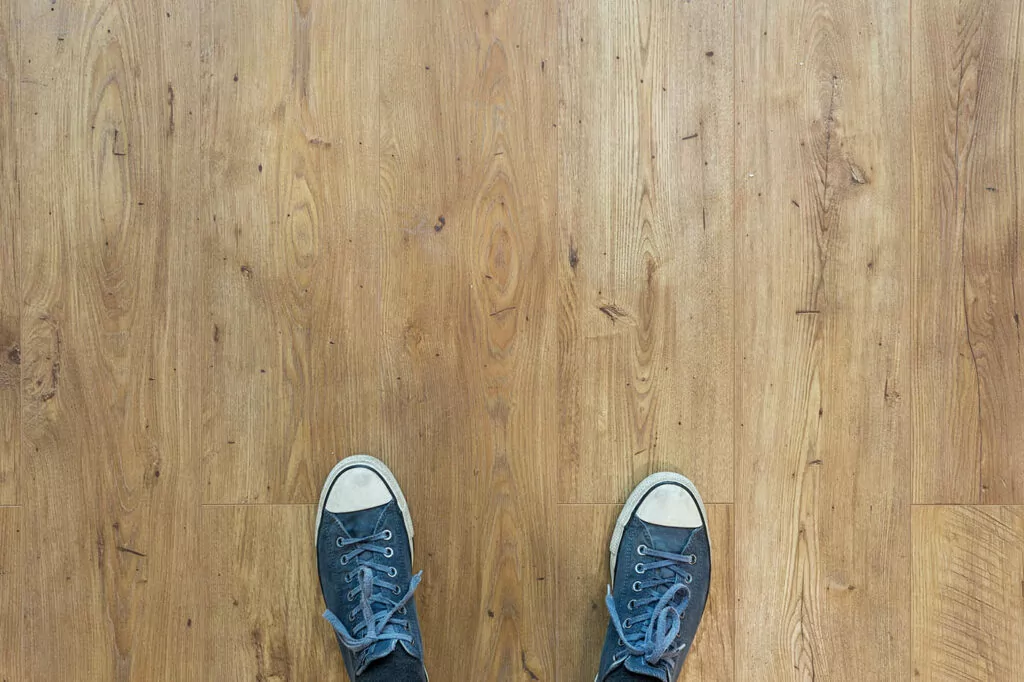Looking to upskill into laying laminate flooring, which is becoming increasingly popular? This highly durable material that looks like wood can handle the demands of even kitchens and bathrooms.
Tasker Iulian D. shared wisdom that flooring-related Home Improvements tasks are not always by the book. He once had to identify why floorboards were separating, and realised that they weren’t installed all the way to the wall underneath the kitchen cabinets. He needed something to move them together and keep them in place. Iulian solved this with a piece of timber that he installed from the wall to where floorboard started. It was not visible so while it was somewhat elementary, it did the trick! Brilliant.
There is plenty of YouTube content that can help you learn this skill, but here is a high-level overview of how a Tasker might approach this task:
- Follow instructions for the product you’re using
- Measure for right amount of materials
- Divide room into parts
- Measure and cut transition pieces
- Clean the floor
- Follow instructions according to the type of floor you’re installing on (wood, concrete)
- Identify if underlay moisture barrier is necessary – if so, measure, cut, stick
- Discuss direction of flooring with your client to hear their preferences
- Cut spacers between the wall and the flooring pieces to allow for floor expansion
- Use an oscillating tool to cut trim and slide laminate under
- Use tape to mark where to cut laminate to slide under trim
- Connect tongues and grooves
- Tap joints with a rubber mallet to make sure they’re locked
- Check if your product or flooring location (such as a kitchen) requires a sealant to protect from moisture
Scoping the task:
- What is the floor surface made of (concrete, wood, other)?
- If damaged: Do you have any ideas about what could have caused the damage?
- Are you looking for a specific pattern or direction of the planks?
- Do you have extra supply of the product?
- Have you already purchased the underlay barrier (if required)?
Special tools for laying laminate flooring:
- Level
- Nail gun for moulding
- Rubber mallet
- Saw with fine-toothed blade for custom-cutting flooring
- Jigsaw to lay flooring around floor vents, etc.
- Extra planks to be able to fix any future issues, such as water damage
Floor laying can be done solo, but it may help to approach these tasks with a fellow Tasker.








